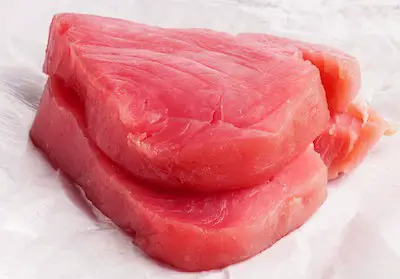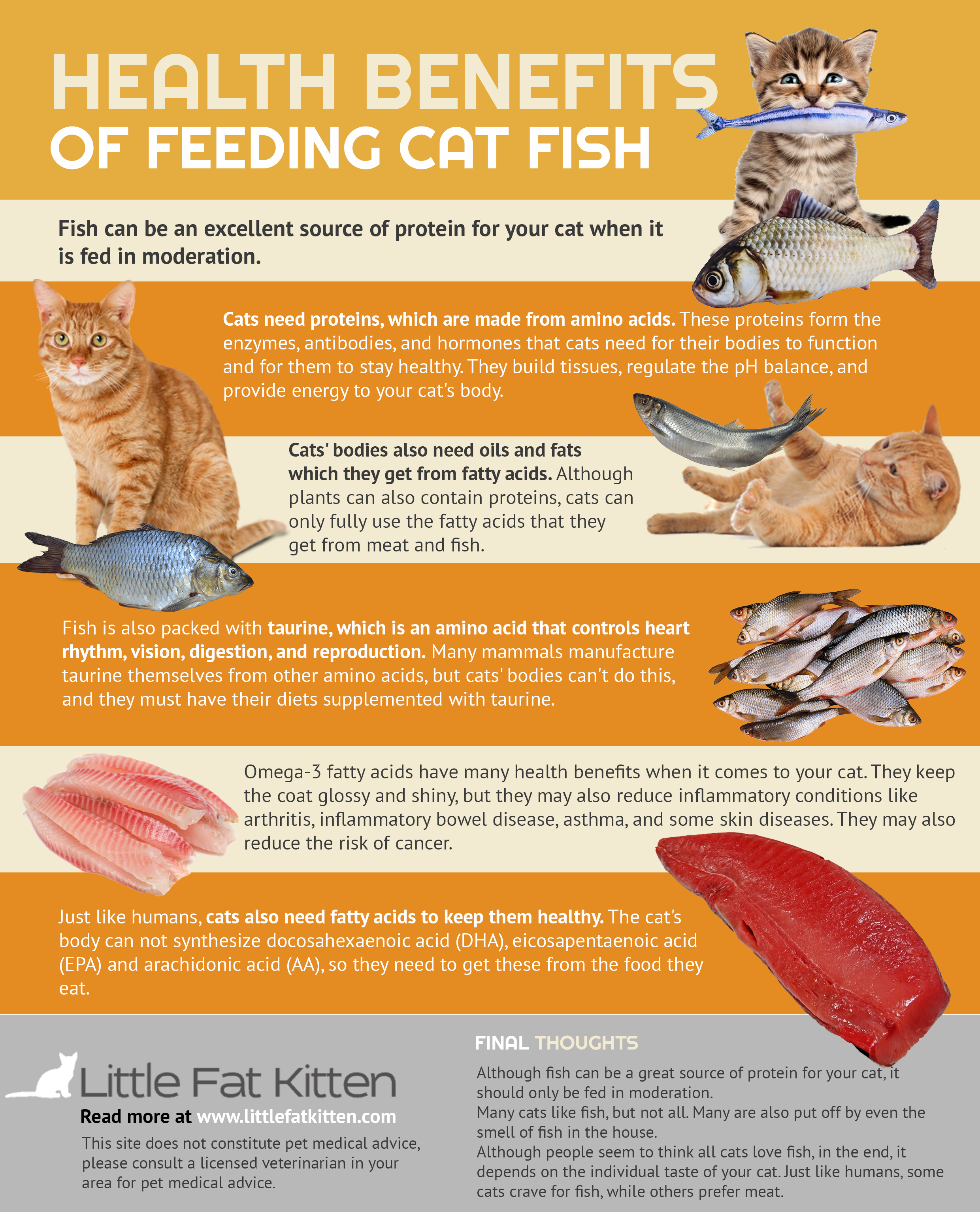Most people seem to think that cats love fish and that it plays a significant part in a cat's diet. Felines are often seen as being especially keen to fish in comparison to other sources of protein, but this is actually a widespread misconception.
It's in cartoons, movies, books…
Cats are often presented as fish-loving pets, that that makes us think it's all cats that adore the fruit of the sea.
Many cats do like fish, there is no doubt about that. But there are also many cats that clearly have a dislike for the food.


Contents
Cats, fish, and evolution
The taste for fish is not evolutionary in the sense that cats usually don't fish themselves. The African wildcat, which is probably the ancestor of our domesticated cat, did not eat fish at all. Their diet consisted mainly of mice, rabbits, reptiles, rats, and birds.
Scientists are not exactly sure how cats have acquired a taste fish, but there is some speculation.
- It has been suggested, that ancient Egyptians domesticated the cat and lured them into their homes with fish. However, the domestication of cats actually started in the Middle Eastern deserts 10,000 years ago.
- Felis catus, the domesticated cat, and its closest relatives in the wild are simply built for hunting birds and small mammals. Most cats are exclusively terrestrial predators with a few exceptions.
- The fishing cat (prionailurus viverrinus) actually does mainly hunt and eat fish. Also, tigers and some other wild cats have been known to fish if they have the opportunity. Nevertheless, fish has never played a significant part in a feline diet.
- Fish also smells and tastes different than their normal prey would, and most cats hate water. Fish just don't seem to fit their diet.
If it's not a part of their natural diet,
why do many cats love fish?
The answer to the question is pretty simple: cats are what is referred to as opportunistic feeders. That means that they will take advantage of the situation and eat anything that is up for grabs.


Also, they have spent thousands of years with humans, scavenging on human food. And because cats are smart, they quickly realized that the fish they could get from the humans at the docks was an easy food source that didn't require any effort.
It was actually good for their coats and allowed them to focus on other things like reproducing. Eating fish that was caught by humans reduced the need for active hunting and saved their energy.
Since cats' digestive systems haven't caught un with this change in their diet, it is only recommended to give fish to your cat in moderation.
A cat can taste significantly less than humans – cats only have about 470 taste buds when humans have 9,000. They can detect all of the five flavors: bitter, salty, sour, sweet, and umami. Yet, their taste of the sweet flavor is restricted since they can't fully digest carbohydrates and sugars, and they don't really need them in their diet.
Although their sense of taste is not as distinct as ours, cats do have a superior sense of smell, and the strong smell of fish might be what attracts cats to it.
Since you're familiar with the different types of hamster cages, here are a few important things to consider when buying the best hamster cage.
Do cats need omega-3 fatty acids?
Yes, just like humans, cats also need fatty acids to keep them healthy. The cat's body can not synthesize docosahexaenoic acid (DHA), eicosapentaenoic acid (EPA) and arachidonic acid (AA), so they need to get these from the food they eat.
Omega-3 fatty acids have many health benefits when it comes to your cat. They keep the coat glossy and shiny, but they may also reduce inflammatory conditions like arthritis, inflammatory bowel disease, asthma, and some skin diseases. They may also reduce the risk of cancer.
The best sources for omega-3 fatty acids are cold-water fish like tuna and salmon.
What types of fish should I feed my cat?
If your cat is not allergic to fish, any type of fish is safe for her.
Tuna and salmon are good sources of omega-3 fatty acids, but unfortunately, they are high in mercury. Other smaller fish like cod, flounder and halibut have less mercury in them, making them a good choice too.
Share this Image On Your Site
How much fish should a cat eat?
Although fish is a great source of protein, taurine, and fatty acids, it also contains some harmful toxins like mercury. It also often contains an enzyme called the thiaminase, which destroys the thiamine that cats need.
A thiamine deficiency might damage the cat's nervous system, although developing the deficiency would require feeding your cat with fish every day for long periods of time. Eating too much fish may also risk developing urinary tract infections or hyperthyroidism in your cat.
The recommendation is that you don't feed fish to your cat more than two or three times a week.
Final thoughts
Although fish can be a great source of protein for your cat, it should only be fed in moderation.
Many cats like fish, but not all. Many are also put off by even the smell of fish in the house.
Although people seem to think all cats love fish, in the end, it depends on the individual taste of your cat. Just like humans, some cats crave for fish, while others prefer meat.
